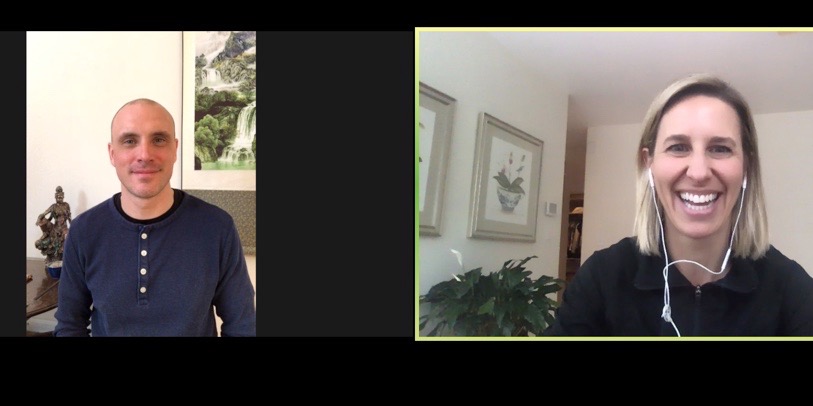The year I turned 38, I decided I would give myself the gift of a meditation practice. With the birth of my third son, I had heard too many times… “enjoy your kids, life goes by so fast.” Starting a meditation practice was my way of addressing this. If I could train my mind to be more still, calm and present; maybe time would feel like it was going by more slowly? Also, my hope was that practicing meditation would help me with patience (for myself and my kids)! Four years later, it is easy to see that my gift was truly a gift. I’m more grounded. It’s easier to get out of my head and be present to life as it unfolds. By NO means am I a “zen” mother walking around accepting every moment of messes and sibling fights. I struggle like everyone. But, meditation is a tool in my toolbox that certainly has helped.
The Definition of Meditation
One of my favorite definitions of meditation is: developing the ability to more skillfully use our minds to bring benefits to both ourselves and the world around us. It’s a form of mental development – or developing the skill or ability to stabilize the mind and not let it wander off and stay wandered off in thought. For example, you may begin thinking about “they didn’t have milk at the grocery.” That then leads to “what if they don’t have eggs, too?” Then, you remember that you didn’t tip the grocery shopper that brought your groceries last week. Now, you’re feeling inadequate and embarrassed. All emotions caused by the initial thought “they didn’t have milk at the grocery store, today.” Sound familiar? You’ve gotten caught up thoughts. And, THAT, wasn’t really helpful.
Reducing Stress with a Meditation Practice
The series of thought processes described above is called “layering.” It’s often these ceaseless thoughts that cause daily, unnecessary stress. When something negative occurs in life, (like me yelling at my kids), our mind’s tendency is to think about it again, and again. In general, we have three kinds of thoughts – negative, neutral or positive. Thoughts are always followed with an emotion or feeling in our body. From a stress-reduction standpoint (or suffering), negative thoughts induce negative physiological changes in our body. Your blood pressure rises, muscles tense, and we release adrenaline and cortisol. What most of us try to do when this happens is to stop the feelings. We might try to repress them, distract ourselves or eat a pack of jelly donuts. During meditation, our thoughts constantly pull us out of our meditative state, but those distractive thoughts are the opportunity to practice stabilizing the mind. And, overtime, this helps us with those stress-inducing thoughts in the real world.
Meditation Apps to Get You Started
When I started my meditation practice, I used the app, Headspace. There is no wrong or right way to get started with/maintain a meditation practice. Very often, when my mind feels too “busy” to meditate, I will use a guided meditation to ground myself. This is not cheating! It’s simply an opportunity to let the words of another guide you into a more calm place and space. Other meditation apps to check out include: Insight Timer and Calm.

